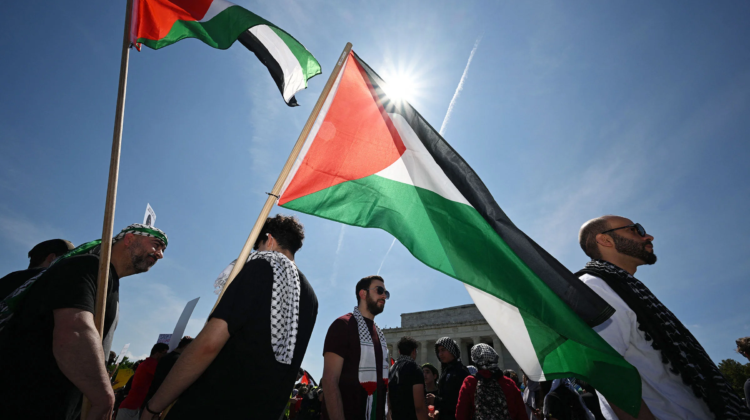Nakba? Really?
In reality, the Jewish presence has considerably benefited the Arabs.

|
Getting your Trinity Audio player ready...
|
[Want even more content from FPM? Sign up for FPM+ to unlock exclusive series, virtual town-halls with our authors, and more—now for just $3.99/month. Click here to sign up.]
In 1896, the pioneering Zionist Theodor Herzl published his monumental manifesto Der Judenstaat (The Jewish State), calling upon Jews to return to their homeland. He argued that establishing a Jewish state in Palestine was not as far-fetched as it might have seemed:
The plan would, of course, seem absurd if a single individual attempted to do it; but if worked by a number of Jews in co-operation it would appear perfectly rational, and its accomplishment would present no difficulties worth mentioning. The idea depends only on the number of its supporters. Perhaps our ambitious young men, to whom every road of progress is now closed, seeing in this Jewish State a bright prospect of freedom, happiness and honors opening to them, will ensure the propagation of the idea.
Many did see exactly that, both before and after Herzl wrote these words. As European Jews began to immigrate in large numbers beginning in 1882, following a pogrom in Russia, in what came to be known as the First Aliyah, they did not foresee this fanatical hatred. In fact, they cherished the naïve hope that the Arabs of the land would welcome them. The Jews’ presence meant Arab prosperity, they reasoned, so why wouldn’t they? Herzl was confident about this:
The Jews are supported by none of the powers and have no military pretensions of their own. There need be no difficulty with the local population. Nobody is trying to remove non-Jews. The local population can only benefit from the prosperity that the Jews will bring.
Do you believe that an Arab who has a house or land in Palestine whose value today is three or four thousand francs will regret seeing the price of his land rise five- or ten-fold? For that is necessarily what will happen as we Jews come. And that must be explained to the inhabitants of this country. They will become rich because of us. They will acquire excellent brothers just as the Sultan will acquire loyal and good subjects who will cause this region, their historic motherland, to flourish.
For a time, it seemed as if this hope wasn’t as naïve as it appeared, and would actually turn out to be the case. Forty of the Jewish families that had just come to Palestine in 1882 settled in the village of Sarafand, which an early-twentieth-century Jewish writer termed “a forsaken ruin.” There they built the settlement of Rishon l’Tsion, which was soon, in the characterization of the same writer, “thriving,” so much so that these forty Jewish families were soon joined in the area by over four hundred Arab families.
The desolate area began to show new life. In 1900, a report of the British consulate stated that “there can be no doubt that the establishment of the Jewish colonies in Palestine has brought about a great change in the aspect of that country.” Four years later, another British consular report declared that “the Jewish element is spreading all over Palestine and represents today the most enterprising part of the population.”
The Jewish presence in Palestine did make life better for everyone there, as Herzl had predicted. In 1936, following an Arab general strike in Palestine that lasted six months and the beginning of what came to be known as the Arab Revolt, with wholesale Arab murders of Jews and the grand mufti vowing the “revenge of God Almighty,” the British government appointed a Royal Commission of Inquiry to investigate why there was so much unrest between Jews and Muslim Arabs in Palestine. The Peel Commission, as it became known after its chief, Lord Peel, published its report the following year. The commission noted “the belief that Arab hostility” to the British approval for Jewish settlement in the land “would presently be overcome, owing to the economic advantages which Jewish immigration was expected to bring to Palestine as a whole.”
And even in the context of this study of Jewish-Arab conflict, the commission had to acknowledge that the Muslim Arabs had benefited from the Jewish presence, and that their numbers had accordingly increased:
The Arab population shows a remarkable increase since 1920, and it has had some share in the increased prosperity of Palestine. Many Arab landowners have benefited from the sale of land and the profitable investment of the purchase money. The fellaheen are better off on the whole than they were in 1920. This Arab progress has been partly due to the import of Jewish capital into Palestine and other factors associated with the growth of the National Home. In particular, the Arabs have benefited from social services which could not have been provided on the existing scale without the revenue obtained from the Jews.
Yet today, the Arabs call the establishment of the Jewish state a nakba, or catastrophe. This is revisionist history at its best.

